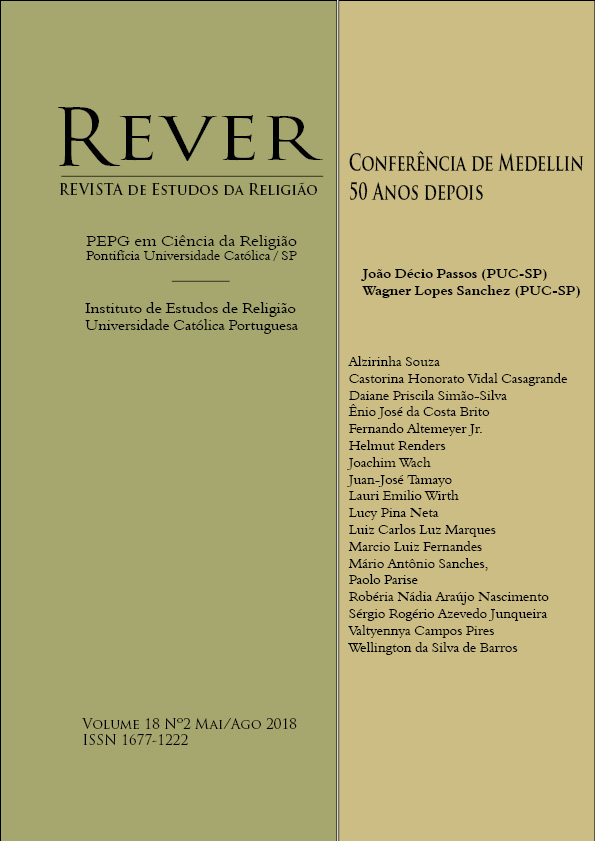The “Brother of the Poor” has been there: What did the “Minor Council” of Medellín and Helder Câmara mean to each other?
DOI:
https://doi.org/10.23925/1677-1222.2018vol18i2a5Keywords:
State, Church, Ecclesiastical models, Power, Resistance MovementsAbstract
This paper aims to select and analyze, through the immense documental production left by the late Archbishop of Olinda e Recife, Helder Pessôa Câmara (1909-1999), signs of the importance, to him, of the organization of so-called “Medellin Conference” and its correct reception. By using Ginzburg’s “method” or “evidential paradigm”, we selected texts apprehending the period of 1962 to 1970, all of them being linked through “conductive wires” typical of Dom Helder’s line of thinking, through which it is possible to know his evolution as “social worker of the holy”, trying to build a contemporary society which was secular yet enlightened by the Gospel, to which he dreamed of a serving, poor and powerless Church. What was lived and decided around the preparation, execution, and reception of Medellin marks, we believe, the beginning of the most mature phase of the Brazilian prelate’s international impacting actions.Downloads
Published
2018-08-31
Issue
Section
Seção Temática
License
Authors who publish in this journal agree with the following terms:- Authors retain copyright, but grant the journal the right of first publication, with the work simultaneously licensed under the Creative Commons BY-NC License.
- Authors are authorized to assume additional contracts separately, for non-exclusive distribution of the work published in this journal (e.g., publishing in an institutional repository or as a book chapter), as long as with acknowledgment of authorship and first publication in this journal.


